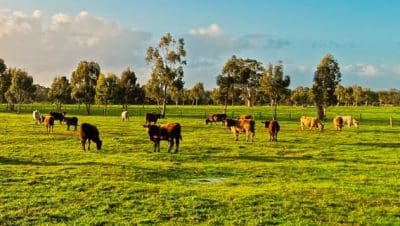A REVIEW of the six-year-old Regional Investment Corporation which provides concessional loans to farmers and small primary production related businesses has recommended its continuation.
Since its launch in 2018 the RIC has delivered 3060 concessional loans totalling $3.3 billion.
The loans have largely been provided to the RIC’s target cohort – farm businesses in financial need, particularly due to drought, but which are considered viable in the long term.
The RIC states that farmers have saved approximately $309.03 million in interest as at 31 March 2024 from these loans and only one loan to date appears unlikely to be recoverable in full.
Review chair Dr Wendy Craik said extensive consultation had confirmed widespread support for the continuation of the RIC and its loan programs and noted its predominantly successful loan delivery.
However, the review also found it was not possible to fully assess the RIC’s impact on drought resilience, structural adjustment and other areas of drought policy due to the absence of comprehensive data collection and analysis.
This was despite recommendations from previous reviews that such data and analysis be implemented.
“The RIC should consolidate and strengthen its position as the Australian Government’s delivery agency for farm business loans by focusing its attention on improving its monitoring, evaluation and reporting of existing activities rather than pursuing a wider remit,” Dr Craik said in the review report.
The review said the RIC Board should take responsibility for monitoring and evaluation and a detailed timetable has been proposed.
The review also calls for an assessment of the appropriate role for government in supporting intergenerational change in agriculture including through the provision of concessional loans for first-time and successional farmers.
It recommends “minor adjustments” to facilitate loan recovery, including rigorous assessment of Drought Management Plans (DMPs) provided by loan applicants as a risk management tool and a key component of loan eligibility.
The Review also recommends the RIC work on enhancing its relationships with the Rural Financial Counselling Service and commercial bankers, and engaging with women in agriculture and culturally and linguistically diverse groups, including First Nations People.
“Suggestions to increase the participation of First Nations people and businesses in agriculture are proposed, including the government investigating a First Nations revenue contingent loan,” Dr Craik said in the report.
The Review proposes that a senior executive of the department be appointed to the RIC Board to provide the RIC with greater visibility of the department and the government’s strategic directions and vice versa, plus enhance the relationship between the two organisations. This approach has been very successful with other SIVs.
Deputy Secretary for Agriculture, Fisheries and Forestry Policy, Matt Lowe, said Dr Craik held more than 100 meetings with more than 65 stakeholders, including the RIC, agriculture groups, banks, Indigenous organisations and other Commonwealth bodies.
“It’s been a thorough examination, and we want to thank Dr Craik for her work in carrying out the review.
“Dr Craik provided her final report, including findings and recommendations, to Minister Watt at the start of the month. The report was tabled in Parliament, and it’s now published.
“The Australian Government will now consider the outcomes of Dr Craik’s review and respond in due course. The RIC Board will also consider relevant recommendations. I note the RIC has already commenced implementing some recommendations that they can, such as improving their data collection.
“This review supports the RIC making improvements to continue working in the best interests of Australian farmers and agribusinesses.”
Source: Department of Agriculture, Fisheries and Forestry. The report is available at Regional Investment Corporation – DAFF (agriculture.gov.au) and Review of the Operation of the Regional Investment Corporation Act 2018 – Agriculture hub.

